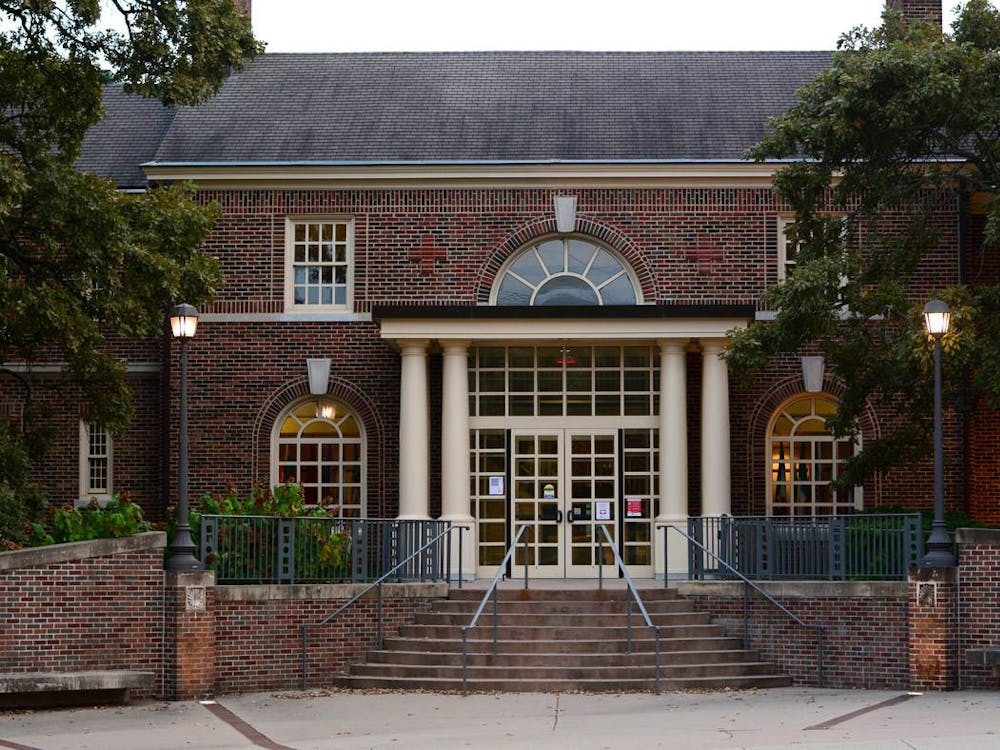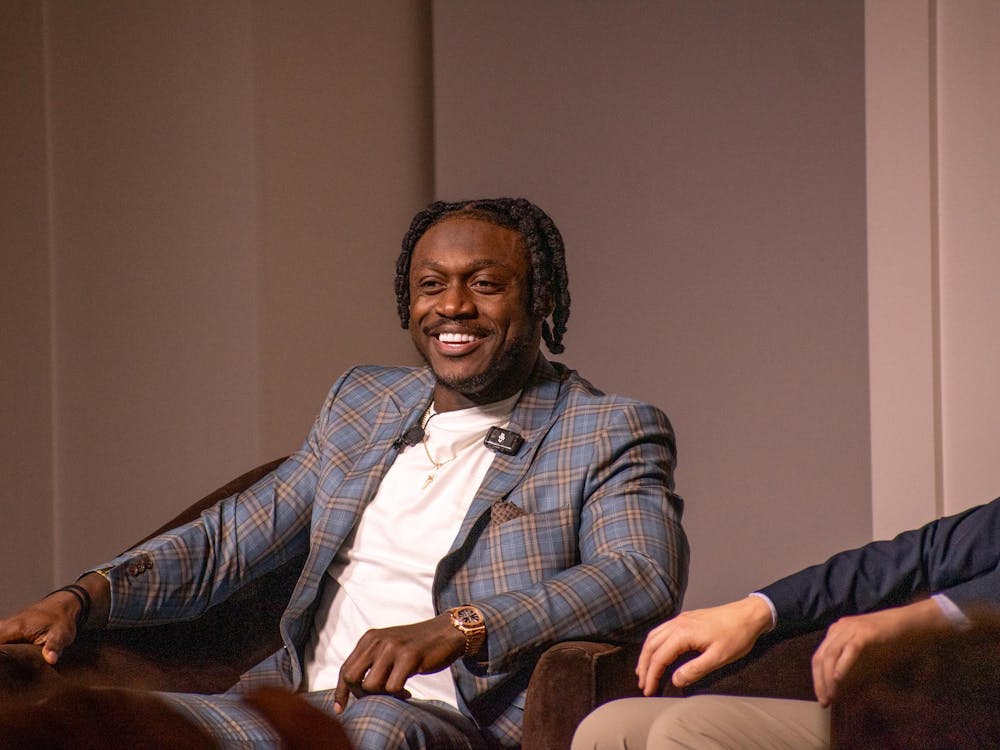By Emily Tate, Managing Editor
If the Board of Trustees has its way, Miami's next president will be selected in secret.
This clandestine search will culminate when a lone finalist is announced in the spring. This will be the first time the Miami community will meet or even learn the name of its next president.
Only the Board of Trustees, along with executive search firm Isaacson, Miller and an unidentified university search committee, will select that finalist, chairman David Budig said at Friday's board meeting.
Many of the 143 faculty members who signed the petition are members of Miami's American Association of University Professors (AAUP) chapter. Keith Tuma, English professor and co-president of the AAUP, said he is disappointed with the board's decision and believes a transparent presidential search would be more effective.
However, the board says an open search would jeopardize presidential candidates' current positions, or even deter qualified candidates from applying. Therefore, the board believes confidentiality throughout the entire application process is crucial.
"So, it's not as transparent as you might like," said Claire Wagner, director of university communications, "But, if it's you, and you're applying … I mean, people have lost their jobs because it's been disclosed that they were looking at another school."
Tuma said he is skeptical of this logic.
"To be president of Miami University is a great job; to be a finalist is an honor," Tuma said. "People who want the job should be prepared to say that they want it. I'd like to see the evidence that good people will not apply if the search is open. I'm not persuaded."
Others echo Tuma's concerns. James Finkelstein is a Miami alumnus ('74) and professor of public policy at George Mason University who evaluates university contracts. Finkelstein said he hopes Miami students and faculty will push back against the closed search.
"In my view, students and faculty should say it is unacceptable for the community to be presented with a single candidate," Finkelstein said. "All that is is a pronouncement. It's bad public policy. Period."
Finkelstein laid out two requirements: there must be more than one presidential finalist, and those finalists should be brought to campus.
Enjoy what you're reading?
Signup for our newsletter
This, he said, is beneficial on both ends - the Miami community gets to meet the finalists, and the finalists can interact with the community. It allows both sides to test the chemistry and see if it's a good fit.
This is how it worked for former Miami president Jim Garland (1996-2006). After meeting once with a search committee and a second time with the Board of Trustees, Garland returned to campus for a university-wide interview before getting the job.
Garland said he is sympathetic to the goals of the AAUP, but he recognizes that the Board of Trustees' most important responsibility is hiring and firing presidents - a task they take seriously.
"That's the kind of time-honored prerogative of the Boards of Trustees at universities," Garland said. "I understand the desire of campus community to be involved, but realistically, the kind of scrutiny required to make this decision … really needs to be done by a smaller, more knowledgeable group."
Everyone wants to have a say in the final decision, Garland said - the AAUP, university senate, student body, alumni association, senior administrators - but ultimately, it falls on the Board of Trustees.
"They need to elicit the opinion of these various constituencies, but not give too much weight to any one," he said.
And that is why the university is creating a search committee. The committee, which Budig said would be named sometime this week, will include a trustee, chair of the Miami University Foundation board, three faculty members, an undergraduate student, a senior administrator and an alumnus.
Given the board's verdict Friday, Tuma said his next best hope is a strong representation on the search committee. And, even then, he said the AAUP is less concerned with the search process itself than the quality of the president hired in the spring.
"In the end, it's what the new president is committed to that matters most," Tuma said.
The final opportunity for the Miami community to meet with representatives of Isaacson, Miller is 11 a.m. Wednesday, Sept. 30 in Wilks Theater.




